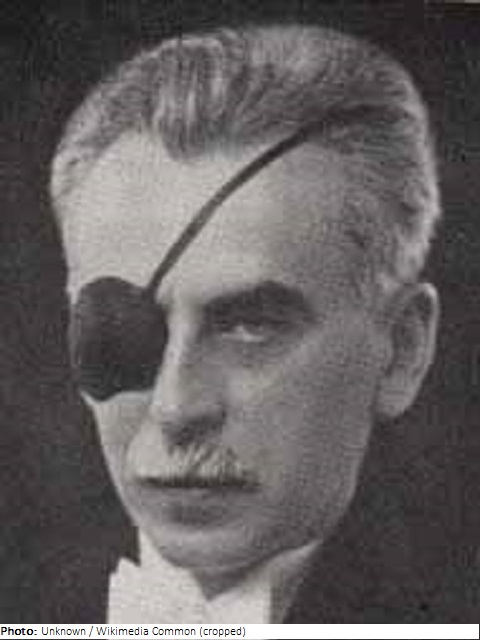
| Roles | Referee |
|---|---|
| Sex | Male |
| Full name | Václav•Štěpán |
| Used name | Václav•Štěpán |
| Born | 12 December 1889 in Pečky, Středočeský kraj (CZE) |
| Died | 24 November 1944 (aged 54 years 11 months 12 days) in Praha (Prague), Hlavní město Praha (CZE) |
| NOC |  Czechoslovakia Czechoslovakia |
| Nationality |  Czechia Czechia |
The Czech pianist, pedagogue, and music writer Václav Štěpán studied composition with Vítězslav Novák (1870-1949) from 1904-09 and then musicology at Prague University, graduating in 1913. He then took courses at the German University in Prague and Berlin and continued his piano studies in Prague, Berlin, and Paris. From 1908, he performed successfully as a pianist at home and abroad. During World War I, Štěpán contracted corneal inflammation, which led to cataracts, which at the time could only be treated by removing the eye. This, however, saved him from being drafted.
From 1919, Štěpán taught aesthetics and later piano at the Prague Conservatory. In 1941 he was appointed associate professor at the master’s school. He was particularly concerned with the Czech composers Josef Suk and Vítězslav Novák. A collection of his most important articles on the two composers appeared as a book in 1945. Since 1908, he had written music reviews, articles, and studies. In 1913, he published “Hudební symbolika a příbuzné zjevy v programní hudbě” (Musical Symbolism and Related Phenomena in Program Music). In the last year of his life, he had to undergo three brain operations.
Štěpán composed vocal, chamber, and piano pieces himself, but gave up composing at the age of 30. He was also involved in numerous organizations, such as the International Society for Contemporary Music (ISCM). His son Pavel (1925-1998) became a well-known pianist, known for his interpretations of the works of Suk, Novák, and Mozart.
| Games | Sport (Discipline) / Event | NOC / Team | Phase | Unit | Role | Nationality | As | |
|---|---|---|---|---|---|---|---|---|
| 1924 Summer Olympics | Art Competitions |  TCH TCH |
 CZE CZE |
Václav Štěpán | ||||
| Music, Open (Olympic) | Final Standings | Judge |